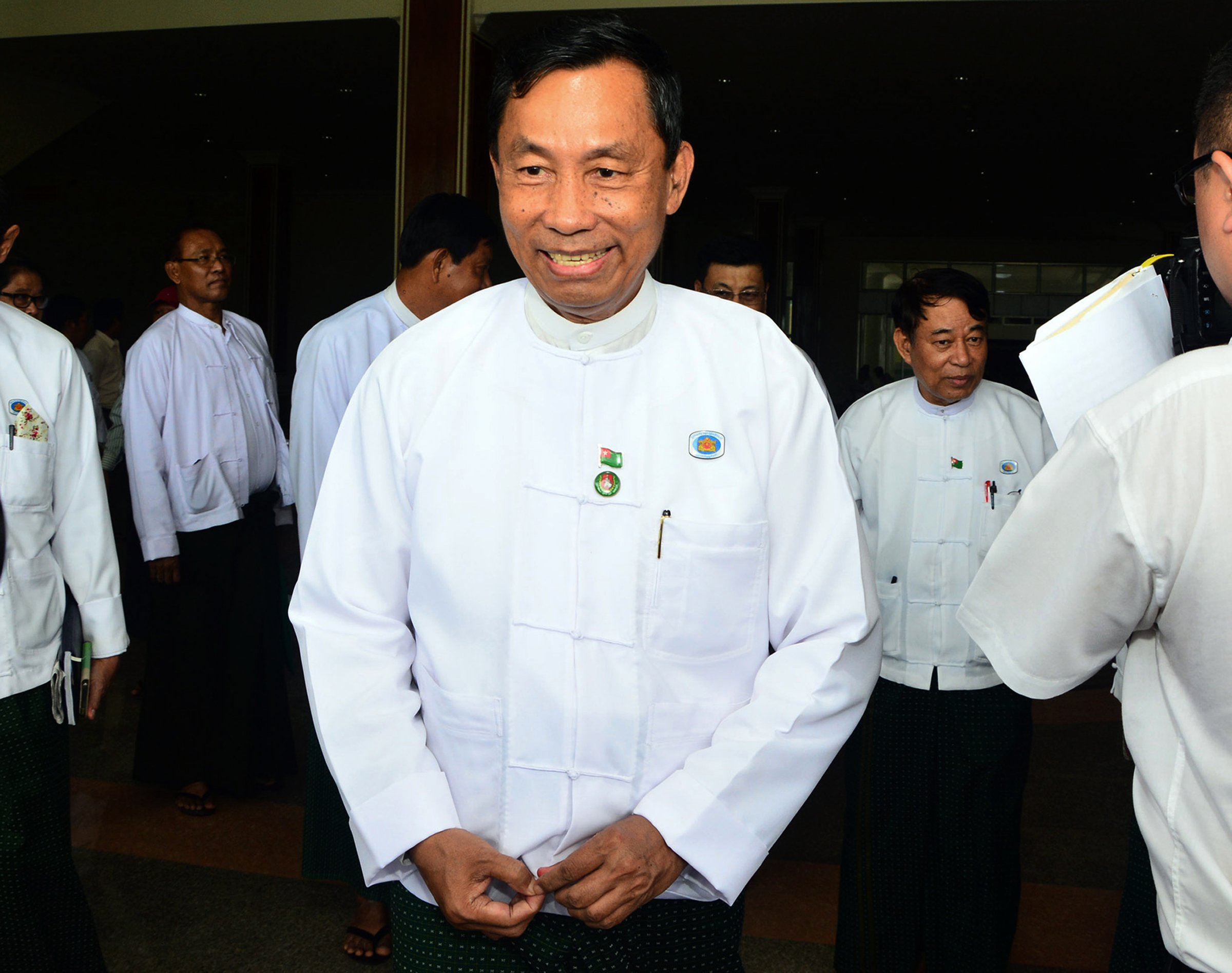
The head of Burma’s military-backed ruling party has been removed from his position, in what appears to be a purge of a key political rival by President Thein Sein before new elections slated for Nov. 8.
Former general Shwe Mann was considered one of the three most powerful figures in the Southeast Asian nation’s nominally civilian government, and also served as speaker of the Lower House of Parliament, a post he seems to have retained for the time being.
Confirmation of his ousting came after a phalanx of security personnel were seen entering the headquarters of the ruling Union Solidarity and Development Party (USDP) and Thein Sein announced he was calling an emergency meeting.
“As far as I know, no arrests have been made,” Zaw Htay, the director of the President’s Office, told the Thailand-based Democratic Voice of Burma—a nonprofit media organization that reports on Burma (formally known as Myanmar) and its rulers. “What I do know is that the president has transferred the position of joint-chairmanship [of the party] to U Htay Oo.”
Shwe Mann is considered one of the most reform-minded members of Burma’s former ruling junta, and even made conciliatory overtures to democracy icon and former political prisoner Aung San Suu Kyi, who currently heads the main opposition National League for Democracy party.
It is believed that Shwe Mann’s willingness to form ties with Suu Kyi irked many hardline and conservative figures in the USDP, as well as former dictator Senior-General Than Shwe, who, despite his retirement, is known to keep a keen eye on political developments amid the impoverished nation’s reemergence from a half-century of military rule.
However, there were signs that the relationship between Shwe Mann and Suu Kyi had soured following the government’s decision not to amend constitutional provisions that barred Suu Kyi from becoming president, owing to her marriage to a foreign national and sons who hold foreign citizenship.
This has led to speculation that the current upheaval, by far the most significant to shake the USDP since the junta ceded power to a nominally civilian government in 2011, was sparked by a leadership battle. Shwe Mann has been a presidential hopeful in the past, Reuters reports, but despite Thein Sein earlier insisting that he wouldn’t serve a second term, the president now appears to want to remain in office.
Shwe Mann’s removal is just the latest turmoil to roil the USDP in recent days, after two leading figures reportedly quit the party as they were apparently refused “safe seats” in the upcoming polls. Aung Min, the president’s chief peace negotiator with ethnic rebel groups, and Soe Thein, a former minister for industry who has been hugely influential in spearheading economic reform, will now both reportedly stand as independent candidates.
More Must-Reads From TIME
- The 100 Most Influential People of 2024
- Coco Gauff Is Playing for Herself Now
- Scenes From Pro-Palestinian Encampments Across U.S. Universities
- 6 Compliments That Land Every Time
- If You're Dating Right Now , You're Brave: Column
- The AI That Could Heal a Divided Internet
- Fallout Is a Brilliant Model for the Future of Video Game Adaptations
- Want Weekly Recs on What to Watch, Read, and More? Sign Up for Worth Your Time
Write to Charlie Campbell at charlie.campbell@time.com